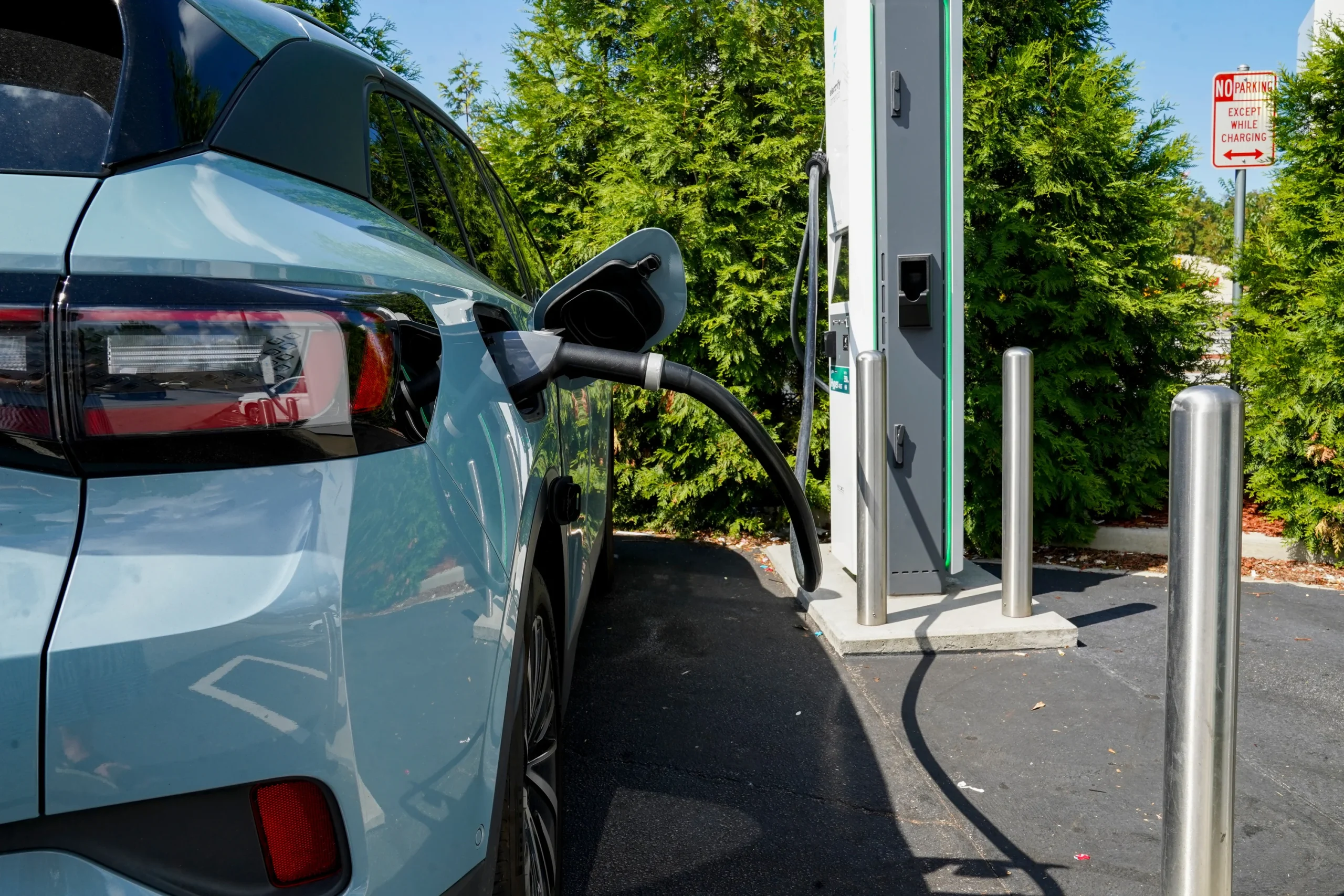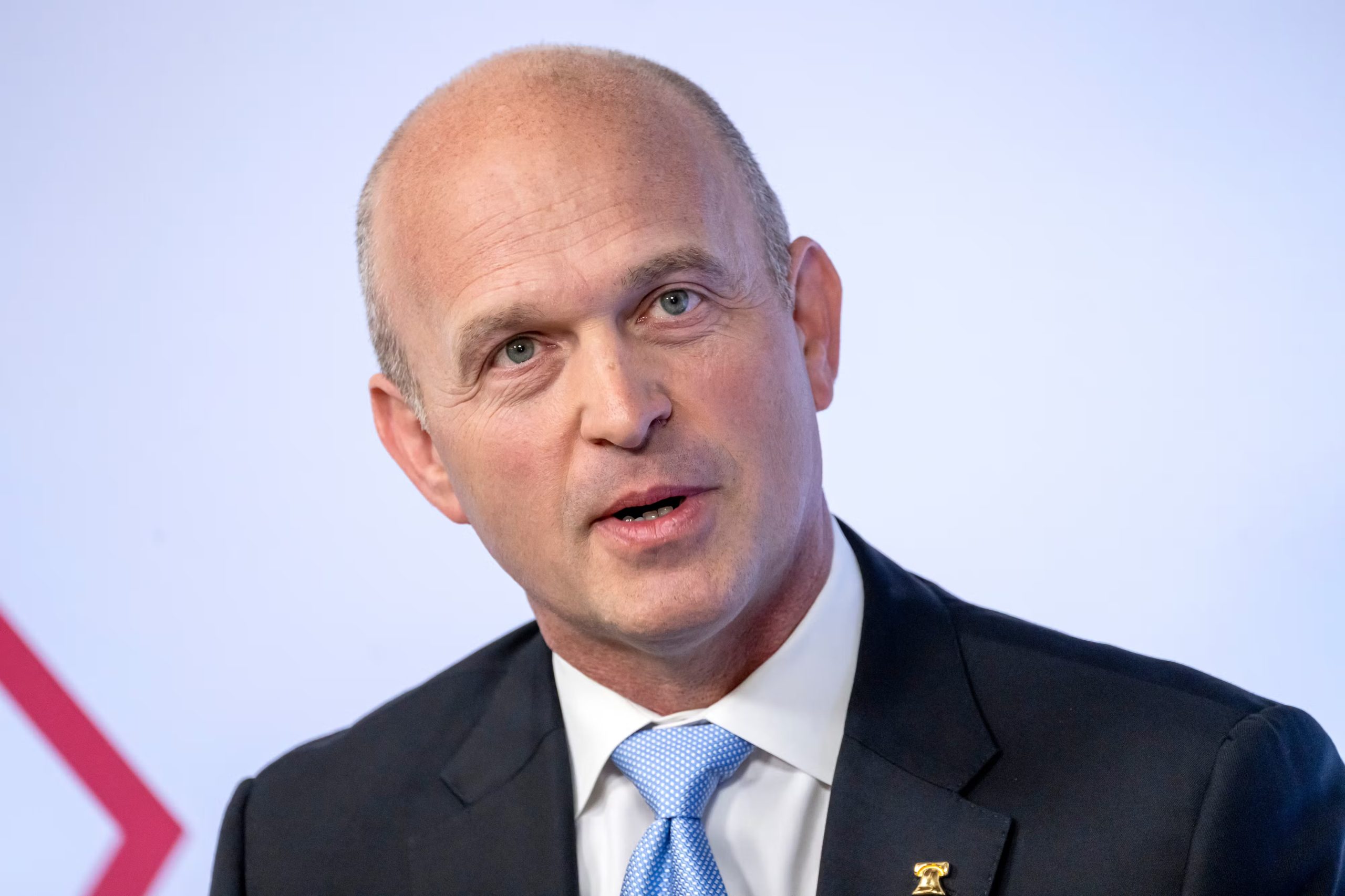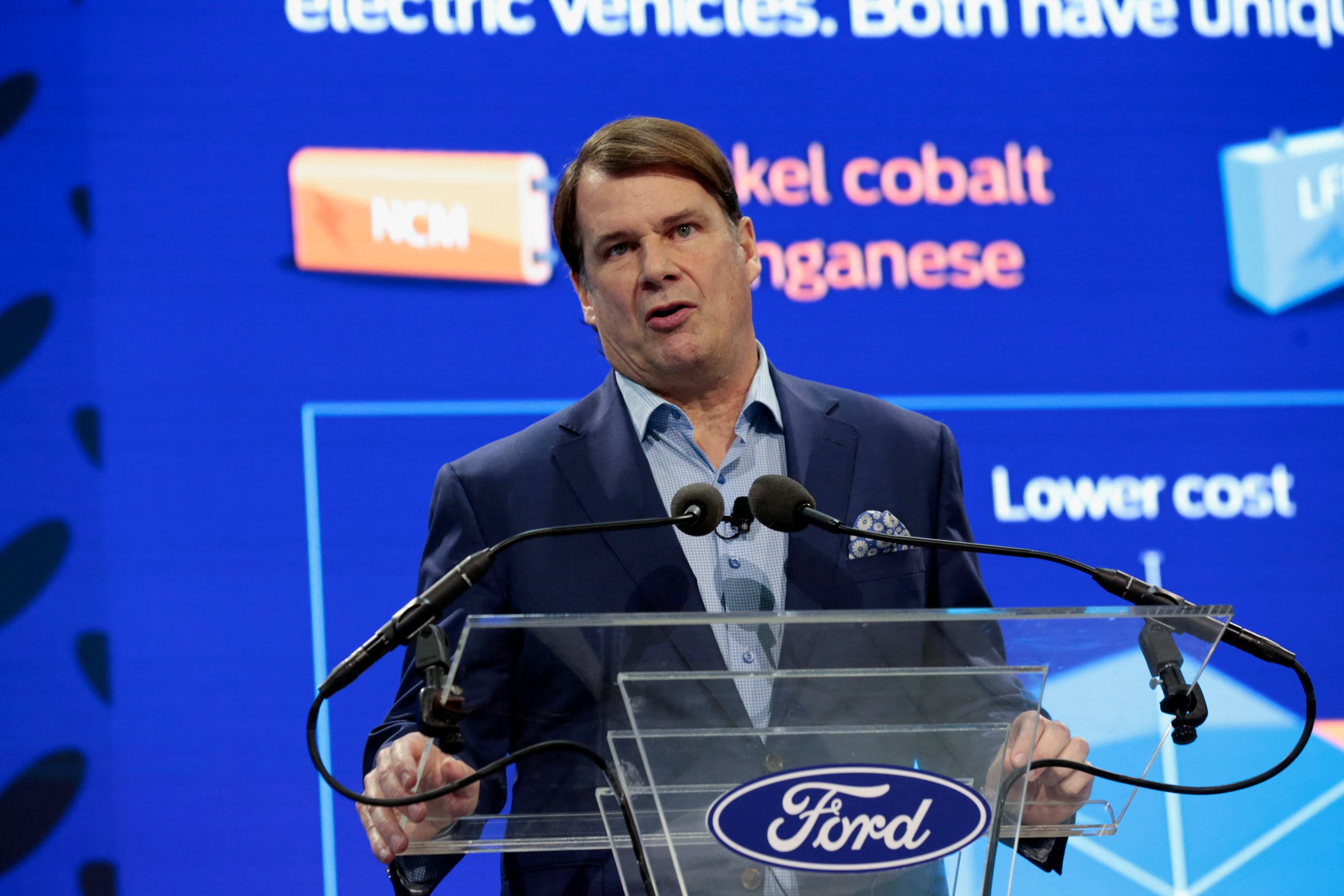The automotive industry is undergoing significant changes due to the transition to electric vehicles (EVs) and the increasing presence of Chinese automakers in global markets. Amidst this transformation, policy changes and potential tariffs proposed by former President Donald Trump are causing concerns among industry leaders.
Jim Farley, CEO of Ford, discussed these challenges at the Wolfe Research Auto, Auto Tech, and Semiconductor Conference in New York, highlighting the risks posed by potential tariffs and policy shifts.
Farley described the auto industry as being in a “global street fight” due to the rapid shift to EVs and competition from Chinese automakers. He noted that any disruptions at this time could significantly impact the industry’s ability to compete and innovate.
He acknowledged that Trump’s focus on strengthening the U.S. auto industry and promoting domestic production is commendable, but he warned that certain policies, such as high tariffs, could have unintended negative consequences.
The global automotive market is already highly competitive, with manufacturers vying for market share amidst shifting consumer preferences and technological advancements. The rise of Chinese automakers, particularly in the EV sector, has further intensified the competition.
These companies benefit from strong government support and access to critical raw materials, giving them a cost advantage over American automakers. Farley emphasized that, in such a challenging environment, stability is crucial for long-term strategic planning. Unpredictable tariff policies could hinder the ability of American companies to invest confidently in future technologies.

Automakers Brace for Tariffs Impact on Supply Chains Costs and Strategic Planning
Trump recently announced a 25% tariff on steel and aluminum imports and suggested the introduction of reciprocal tariffs on major trading partners. If enacted, these tariffs would take effect almost immediately.
Farley warned that such measures could be devastating to automakers like Ford, which rely on international supply chains. The company operates under the United States-Mexico-Canada Agreement (USMCA), but a 25% tariff could still have significant financial implications.
These tariffs would not only affect raw material costs but also disrupt the broader supply chain. Many components used in vehicle assembly, including engines, transmissions, and electronic modules, are sourced from Mexico and Canada.
If tariffs are imposed, the cost of these components would rise, forcing automakers to either absorb the increased costs or pass them on to consumers. In an industry where price competitiveness is key, such disruptions could have long-term ramifications.
Analysts estimate that Ford has a $35 billion exposure related to finished vehicles and parts that move between Mexico, Canada, and the United States.
Ford’s Chief Financial Officer, Sherry House, explained that the company is preparing for higher tariffs by analyzing material flows and inventory levels. However, she noted that the company is currently in a “wait and see” mode before making any large-scale decisions.
Similarly, General Motors (GM) CEO Mary Barra stated that GM has been planning for potential tariffs since November. The company has conducted scenario planning to identify mitigation strategies and believes it can offset 30-50% of the tariffs without significant capital investment. However, if tariffs persist long-term, GM may need to deploy additional capital to adjust its supply chain.
Both companies have emphasized the importance of strategic planning and flexibility. They are exploring alternative sourcing strategies, adjusting production schedules, and considering investments in domestic manufacturing to reduce dependency on international supply chains. However, these adjustments require time and resources, making it imperative for policymakers to provide clarity on future trade policies.

Inflation Reduction Act Changes Could Impact EV Investments Jobs and Vehicle Prices
Farley also expressed concerns about the potential repeal of parts of the Inflation Reduction Act (IRA), which provides a $7,500 tax credit for EV buyers and includes production tax credits for businesses investing in renewable energy.
Ford has already invested heavily in battery production and assembly plants in states like Ohio, Michigan, Kentucky, and Tennessee. If key provisions of the IRA are repealed, these investments and the jobs they support could be at risk.
The automotive sector is a major contributor to the U.S. economy, providing millions of direct and indirect jobs. From assembly line workers to suppliers and dealership employees, any disruption in the industry could have a cascading effect on employment.
If tariffs lead to higher vehicle prices, consumer demand could decline, leading to production cuts and potential layoffs. The uncertainty surrounding trade policies adds another layer of complexity to workforce planning, making it difficult for companies to commit to long-term hiring and expansion strategies.
House noted that Ford sources 90% of its steel domestically and imports only 10% from Canada. Aluminum is also primarily sourced from within the U.S. However, Farley pointed out that Ford’s suppliers rely on international sources for these materials, meaning that tariff-induced price increases will still impact the company. This, in turn, could lead to higher vehicle prices for consumers.
Steel and aluminum are essential materials in vehicle manufacturing, influencing both production costs and vehicle performance. While domestic sourcing helps mitigate some of the risks associated with tariffs, supply chain dynamics remain complex.
Any increase in material costs would likely be passed down the supply chain, affecting not only major automakers but also smaller suppliers who operate on tighter margins. These suppliers play a critical role in the industry, and any financial strain on them could disrupt production timelines and quality standards.

Rising Costs and Tariff Impact on Vehicle Prices Automakers Face Affordability Challenges
According to Kevin Roberts, director of economic and market intelligence at CarGurus, tariffs on steel and aluminum could drive up car prices, particularly for vehicles manufactured in the U.S. Currently, 42% of American-made new cars are priced above $50,000, and larger vehicles like trucks and SUVs are especially vulnerable to price hikes due to their higher material usage.
Farley and Ford Chairman Bill Ford have emphasized the importance of reducing vehicle prices while controlling operating costs. However, with potential tariffs and supply chain disruptions, maintaining affordability will be a challenge. Farley acknowledged that automakers need to focus on cost efficiency, stating, “We have to work on our costs. This is going to be a heck of a … market this year.”
If vehicle prices rise significantly, consumer demand may shift towards smaller, more affordable models or used vehicles. This could impact sales volumes and profitability, forcing automakers to reevaluate their product strategies.
Additionally, higher financing costs and inflationary pressures further compound the affordability challenge, making it crucial for policymakers to consider the broader economic implications of trade policies.

Trade Uncertainty and Its Impact on Tariffs Policy Shifts and Automakers
Farley highlighted the broader uncertainty that tariffs and policy changes bring to the industry. Even speculation about tariffs can cause market fluctuations, leading to increased costs and logistical challenges. He emphasized that supply chain disruptions, even if temporary, can create chaos for automakers and consumers alike.
Given the interconnected nature of the global auto industry, unpredictability in trade policies can lead to stock market volatility, shifts in investment patterns, and changing consumer sentiment. Companies must remain agile and proactive in their decision-making, balancing short-term risk mitigation with long-term strategic goals.
The automotive industry is experiencing a period of rapid change, with electric vehicle adoption, global competition, and policy shifts influencing its future. While boosting domestic manufacturing remains a priority, the introduction of tariffs and the possible repeal of economic incentives could lead to unforeseen challenges.
Ford, GM, and other automakers are actively preparing for these challenges, but uncertainty remains high. The industry must navigate these changes carefully to maintain competitiveness, control costs, and continue innovating for the future.
Also Read: 10 Best Performance Hatchbacks You Can Buy in 2025 for Speed, Style, and Practicality

